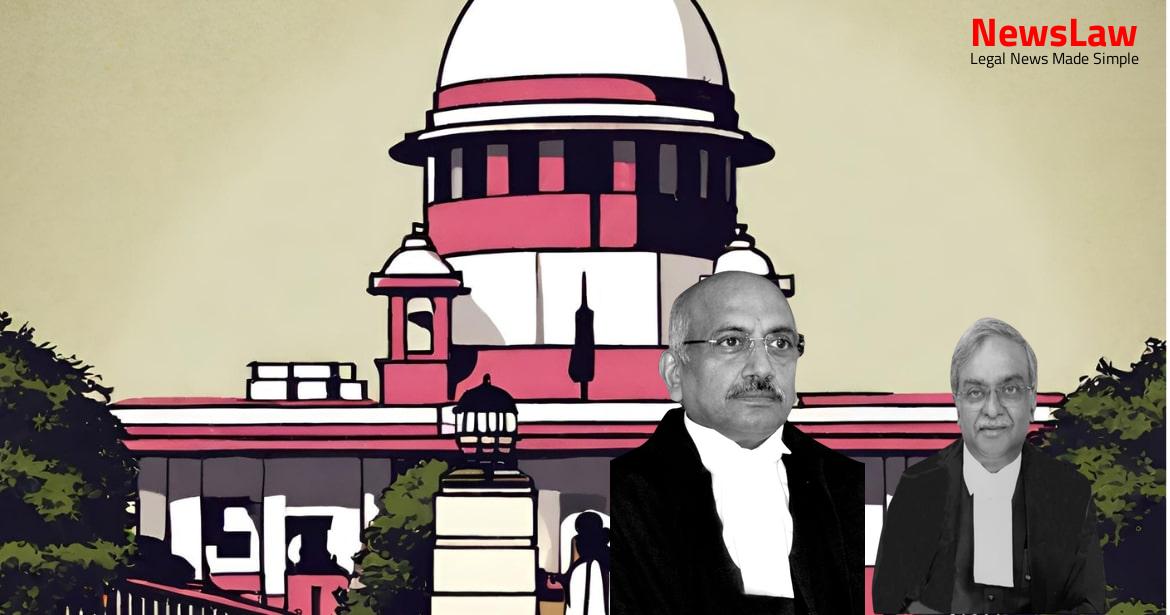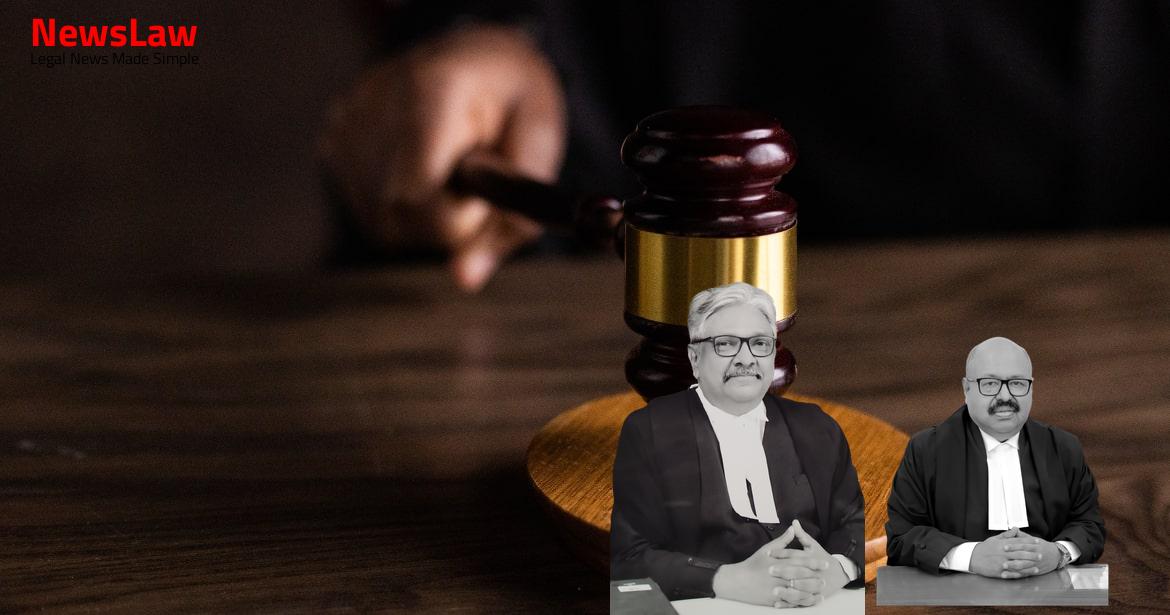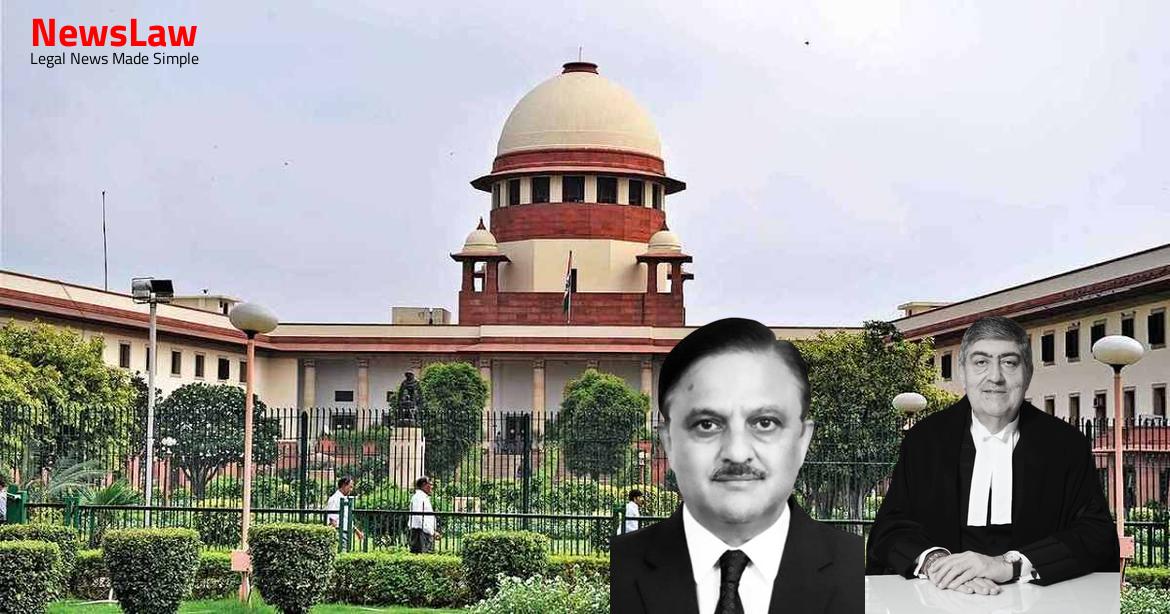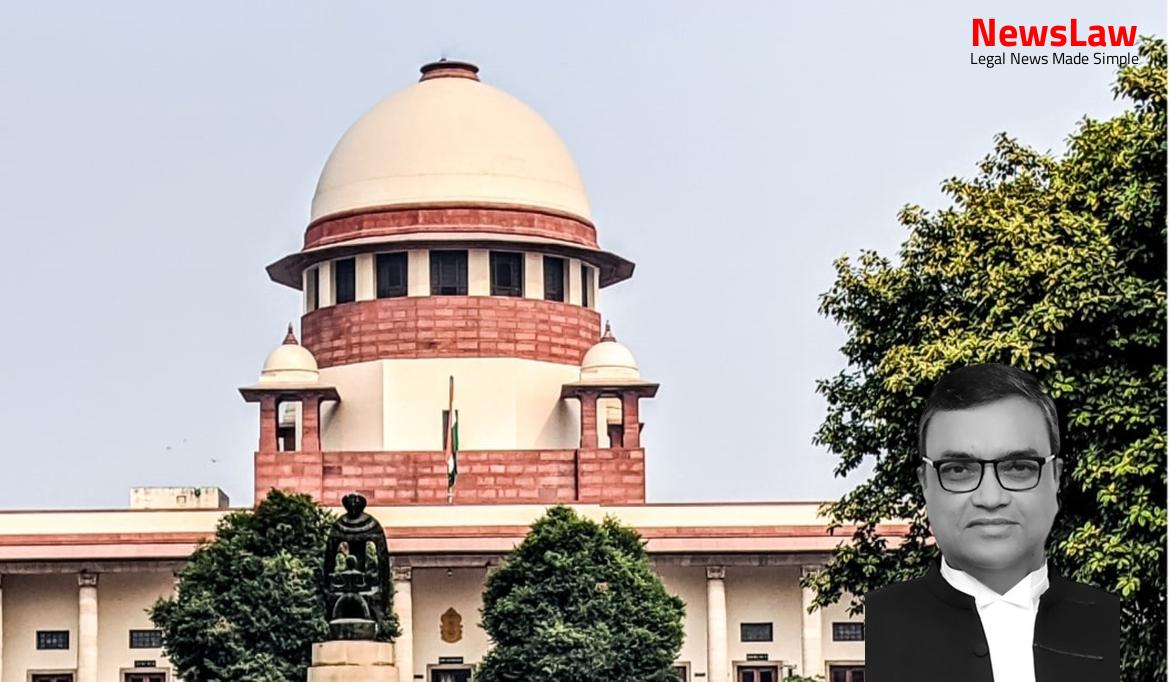In a recent legal case, the court delved into the intricate details of a candidate’s application form and OMR sheet language mismatch. The decision hinged on strict adherence to prescribed procedures and the principle that where a specific way of doing things is mandated, deviations may lead to disqualification. This blog post explores the legal intricacies of the language discrepancy issue in the application process and its implications on judicial review.
Facts
- The writ petitioner appeared for the written test on 23.6.2013 and wrote the paragraph in Hindi on the OMR sheet, although the application form was in English.
- The selection process involved a written examination with 120 multiple choice questions lasting 90 minutes, where candidates needed at least 35% marks (30% for SC and ST candidates) to be considered for further tests.
- The application form needed to be filled in Hindi or English in the candidate’s handwriting as per the Advertisement’s Clause B requirement.
- The writ petitioner, belonging to the OBC category, submitted self-attested documents in English along with the application form.
- The Government Examiner of Questioned Documents confirmed that the signatures on the OMR sheet and certificates were by the same person, signed in Hindi.
- Subsequently, in the PET, the writ petitioner signed as ‘M S’, which consists of two English letters.
- The challenge in the appeal is against the High Court of Allahabad’s order dismissing the appellants’ appeal in relation to Employment Notice No 1/2011 for filling constable posts in the Railway Protection Force.
- The writ petitioner, despite scoring 73.32 marks against the OBC cut-off of 58.5 marks, was not appointed and hence filed a writ petition before the High Court.
- An order passed by the High Court on 19.10.2016 remitted the matter to the appellants for reconsideration of the entire issue, including thumb impression and finger prints.
- The candidature of the writ petitioner was rejected on 27.1.2017 by the Competent Authority, which was challenged by the writ petitioner through a writ petition.
- The writ petition challenging the rejection was set aside by the learned Single Bench of the High Court on 20.2.2019.
- The Division Bench of the High Court affirmed the decision of the Competent Authority to reject the candidature of the writ petitioner.
- The writ petitioner was given an opportunity to make a fresh application to be heard by the Chief Security Commissioner.
Also Read: Landmark Judgment on Compensation for Fatal Accident
Arguments
- Ms. Madhavi Divan argued that using a different language in the application form compared to the OMR sheet leads to rejection of the candidature.
- The handwriting comparison paragraph in the application form was for identity verification in case of disputes.
- The High Court’s decision was based on the lack of proof of impersonation as per handwriting expert opinion.
- Mr. Prashant Bhushan argued that the use of a different language is irregular but not a ground for rejection.
- Referral to judgments in different cases highlighting the importance of language matching for identity verification.
- The writ petitioner filled the OMR sheet in Hindi in 2013 due to an inadvertent mistake in filling the application form in 2011.
Also Read: Land Acquisition Compensation Legal Analysis
Analysis
- The Division Bench of the High Court considered the time gap between filling the application form and the examination as the basis for the inadvertent filling of the OMR sheet in Hindi by the petitioner as surmises and conjectures, which led to the disentitlement of the petitioner’s result.
- The condition regarding the usage of certain writing materials like whitener, sketch pens, etc., was crucial in determining the invalidation of the answer book in the case of G. Hemalathaa.
- Violation of mandatory conditions, such as providing incorrect information like date of birth or submission of necessary certificates after deadlines, can lead to the disentitlement of the candidate for the appointment.
- The filling of the application form in a different language than the specified one was considered a clear violation of the instructions mentioned in the advertisement, leading to the disqualification of the candidate.
- The judgment cited in other cases like Avtar Singh, Ajay Kumar Mishra, and Ram Kumar Gijroya, involved specific circumstances of suppression of material information, incorrect personal details, or late submissions, which resulted in disqualification as well.
- The use of different languages in the application form and answer sheets was deemed relevant to maintain the probity of the examination process, and strict adherence to the prescribed procedures was emphasized.
- The principle that where a power is given to do a certain thing in a certain way, the thing must be done in that way or not at all was enunciated by Privy Council in Nazir Ahmad v. King-Emperor.
- This principle was followed by the Court in Chandra Kishore Jha v. Mahavir Prasad & Ors. and Cherukuri Mani v. Chief Secretary, Government of Andhra Pradesh & Ors.
- The judgments of Municipal Corporation of Greater Mumbai (MCGM) v. Abhilash Lal & Ors. and OPTO Circuit India Limited v. Axis Bank & Ors. also affirmed this principle.
- The manner of filling up the application form and attempting the answer sheets must be as prescribed.
- Using a different language for the application form and the OMR answer book disentitles the petitioner from judicial review.
- The writ petitioner’s candidature was rightly rejected due to using different languages.
- The High Court’s order is not sustainable in law and is set aside.
Also Read: Legal Analysis in Land Allotment Case
Decision
- The writ petition has been dismissed.
- As a result, the appeal has been allowed.
Case Title: UNION OF INDIA Vs. MAHENDRA SINGH (2022 INSC 747)
Case Number: C.A. No.-004807-004807 / 2022



